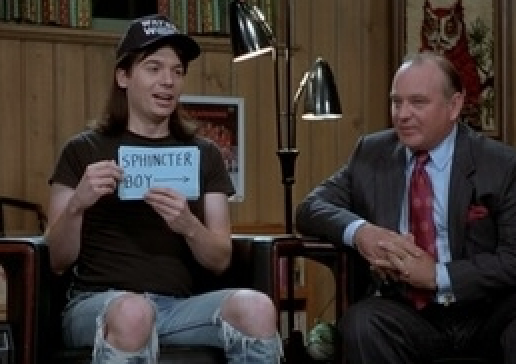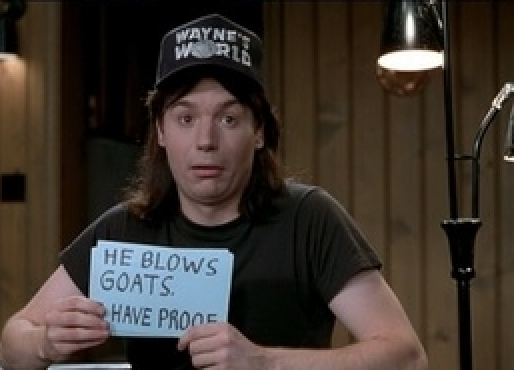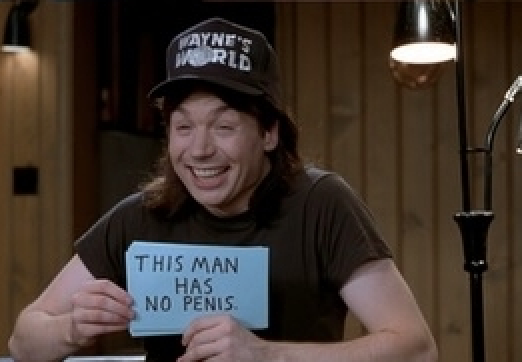Superman Can Wait: My Personal Experiences With Not Getting Agreements In Writing
/You know, I say "get everything in writing" so often on this blog that I feel like I should have it pre-engraved on my headstone. I may be a broken record about it, but that's only because I've had plenty of first-hand experiences where that information would've come in handy. Here's one such experience that proved so formative, it helped shape my eventual journey from film to the law.
In the summer of 2002, I was a freshly minted RISD grad working in the vault of a major post-production house in New York City. I was hoping that after a few months organizing shelves of film and tape, they would call me up to the big leagues so I could learn to be an assistant editor or color correctionist. It wasn't my dream, but it was proximate enough to my dream that I stuck it out. In late August, my friend Maureen from college called and told me about a job opportunity she knew I couldn't pass up. After graduation, Maureen moved back home to Orange County where she was picking up odd jobs in the film business. A friend of hers - who I'll call Jenny because I can't remember her actual name - had been an assistant editor on Brett Ratner's films, and because Ratner was about to direct the new Superman movie, Jenny was slated to work on it. According to Maureen, Jenny could get me a job as a production assistant on the film, but I had to get my ass to L.A. pronto, since production was ramping up. This meant leaving my steady job and steady girlfriend (who eventually forgave me for moving 3000 miles away and married me) and taking a hell of a risk. Other than Maureen, I didn't know anyone in California. I had no money, no connections, nowhere to stay. I was going out on a limb, and trusting to fate, God, the universe, whatever, that it wouldn't snap beneath me.
With Maureen's help, I called Jenny who put me in touch with the production company. The woman I spoke to there was very encouraging and though she couldn't guarantee I'd be hired, she assured me that once I got to Los Angeles, I could come in for a proper interview and, most likely, get myself a set PA job. A month later, I was in the City of Angels, ready to make my dream come true.
"A job as a production assistant?" you might ask. "That was your dream?" Well, yes. Certainly I had no illusions about where a PA's job was on the totem pole. I knew the majority of my job would be making coffee runs to the nearest Starbucks. But this was a chance to work on a Superman film. SUPERMAN! For those who don't know me, Superman is my jam, particularly Christopher Reeve's iteration. Not enough to name my kid Kal-El or anything, but growing up, he meant a lot to me. He represented the ideal of heroism and goodness in a world that seemed continually bereft of both. He was what I wanted to be. It didn't matter that the script Ratner was working from (written by J.J. Abrams) had leaked online and been universally lambasted. It didn't matter that Ratner had only one good film under his belt and was widely considered a hack. It only mattered that it was Superman and I would be on the same set as him. How could this not all work out?
Oh my friends, how I'd love to tell you the gambit paid off. And if life were more like a movie, it would have. But within weeks of landing in L.A., Ratner was off the project and it reentered development hell. And all of a sudden, I had to make a life for myself in a strange place with no resources. You could say I acted recklessly, that I was dumb. And you'd be right to say that. A smarter man might have waited for an official job offer from Warner Bros, something in writing that I could hold in my hand on that plane ride across the country. But I was young and ambitious and excited to get started before there was even something to get started on. I upended my life without a guarantee of employment, only the vague promise of it.
But do you know how many artists do the very same thing? Sure, most don't move across the country for it, but it's so common for artists to get excited and start working on something before the deal is written down that it can take up anywhere from 50% to 75% of my law practice. So when I tell you to get everything in writing, I say it not just because it's smart business, not just because I see my clients going through it, but because I've lived it and know what can happen if you don't. Getting all your deals in writing protects your interests and holds everyone accountable. It should be an invaluable tool in your arsenal. So learn from my mistakes. If the job is important enough, it can wait until everything is written down.















